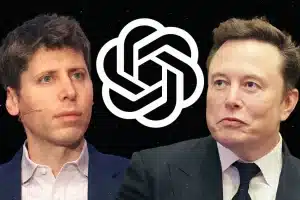Key Takeaways
- Elon Musk took to the stage at a conservative conference with a chainsaw, a gift from Argentina’s President Javier Milei, symbolizing the cutting of bureaucracy.
- The chainsaw, engraved with Milei’s slogan “Viva la libertad, carajo,” represents Milei’s approach to government downsizing, similar to his campaign imagery.
- At the conference, it was revealed that 6,000 employees at the U.S. Internal Revenue Service would be fired as part of significant government downsizing efforts that Musk is leading.
- Musk, as the CEO of Tesla and notable supporter of Milei, actively promotes Milei’s speeches and has been pushing for substantial cuts to U.S. federal government spending.
In a striking and symbolic moment at a conservative conference just outside Washington, Elon Musk, the CEO of Tesla and a central figure in today’s technological and political landscape, took to the stage wielding an unusual gift—a chainsaw. This gift came from none other than Argentina’s libertarian President Javier Milei, known for his radical approach to government expenditure. Let’s delve into the significance of this gesture and its broader implications for U.S. federal government spending.
The Symbolism of the Chainsaw
Musk’s appearance with the chainsaw is not just a quirky public relations stunt but a profound statement tying together symbolic and practical political realities. The bright red tool is more than a simple gift; it represents a shared ideology with President Milei, who, in his political rallies, often brandishes a chainsaw as a metaphor for cutting through bureaucratic red tape. The chainsaw’s engraving—Milei’s slogan, “Viva la libertad, carajo”—which roughly translates to “Long live freedom, damn it!”—captures a libertarian zeal for reducing the size of government.
Musk’s Role in Government Downsizing
Under the administration of President Donald Trump, Musk has been tasked with leading significant efforts to slash U.S. federal government spending. This initiative has particularly targeted several departments, including banking regulators, space exploration scientists, and environmental workers. Amid these broad strokes of fiscal conservatism, the chainsaw finds its place as a potent emblem of these drastic reforms.

Key Actions and Implications
- IRS Layoffs: At the same conference, the announcement of 6,000 layoffs at the U.S. Internal Revenue Service underscored the scale of this downsizing. This move not only symbolizes a reduction in direct government employment but also sparks debate on the efficiency and functioning of the IRS in managing national taxation without such a large workforce.
- Beyond the Symbolism: The act of downsizing government services and personnel, while appealing to libertarian and conservative beliefs, raises questions about service quality, economic impacts, and the intended and unintended consequences of such broad restructuring.
Broader Context and Questions
Elon Musk’s involvement in these efforts highlights a fascinating intersection of technology leadership and political influence. As a public figure who frequently invites scrutiny and admiration in equal measures, Musk’s acceptance of the chainsaw gift and his public endorsement of Milei’s libertarian vision beg wider societal questions.
- What is the ultimate impact of reducing government size on society? While some argue that smaller government translates into more efficiency and freedom for citizens, others caution against the dangers of inadequate public services and weaker regulatory frameworks.
- The Influence of High-Tech Leaders in Politics: Musk’s role exemplifies the increasing trend of tech leaders stepping into political arenas, bringing their unique perspectives to governance and public policy. This raises the question: how should we balance the innovative prowess of tech leaders with the nuanced needs of political governance?
The chainsaw, thrust into the spotlight through Musk and Milei, is a multifaceted symbol of contemporary political strategy and technological influence. As the conversation around government downsizing continues, Musk’s involvement presents a unique case study in leadership, symbolism, and policy-making. The public and policymakers alike must critically assess these developments to ensure that aspirations for freedom and efficiency do not eclipse the foundational goals of equity and service in society.





